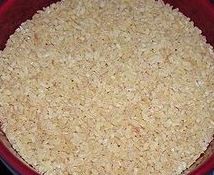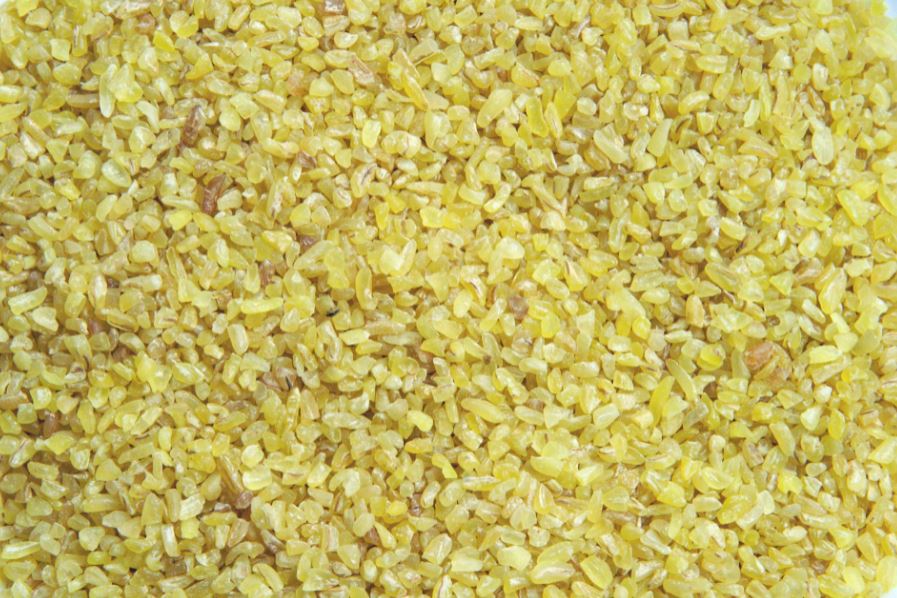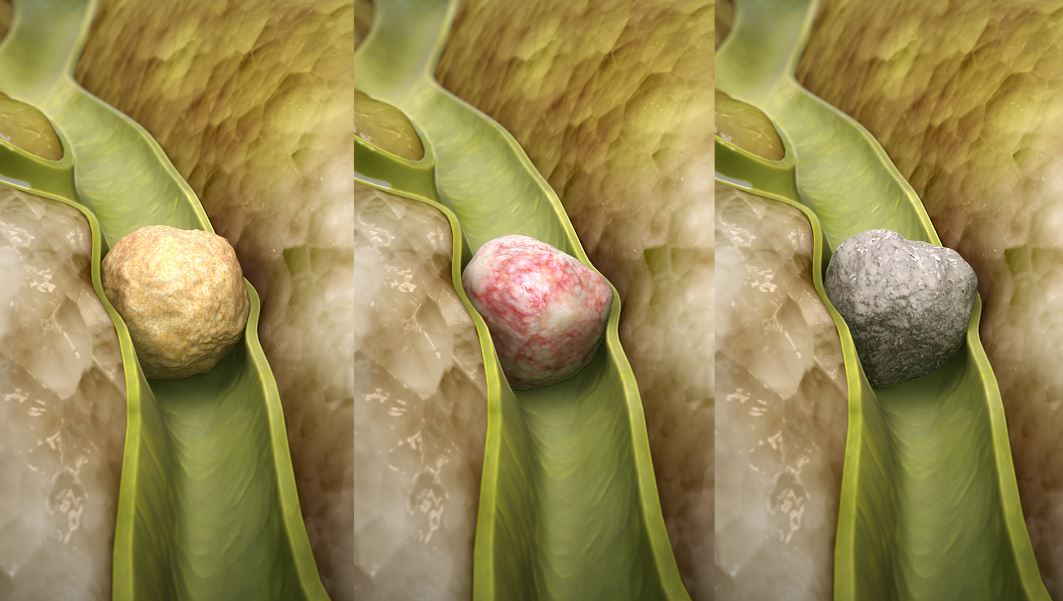Bulgur, also known as riffoth or burghul, is a cereal food made from the parboiled ground semolina of several different wheat species. It originated in the cuisine of West Asia. Sometimes, bulgur is confused with cracked wheat which is a shredded grain of wheat that has not been parboiled like bulgur. It has a nutty and light flavor that you can enjoy in different meals.
Bulgur wheat might not be your first choice but the health benefits and nutrition are at the top. There are numerous health benefits of bulgur wheat such as it improves digestion, boosting circulation, stimulating growth and development, preventing chronic disease, aiding in sleep, and boosting the immune system. All of these health benefits are due to the high levels of vitamins, minerals, fiber, protein, carbohydrates, etc. in the bulgur wheat.
What Is Bulgur Wheat?
Bulgur wheat is a mixture of grains such as grains without hulls and different types of wheat found in Europe, India, or the Middle East. This ingredient is very popular in the various side dishes and can be quickly cooked. Hence, it is a versatile and convenient food.
If you are a fan of such cuisines, there are fair chances that you have tasted bulgur as an ingredient in tabbouleh. It can be found in many forms such as bread, pasta, hot or cold grain salads.
Although there are many varieties of grains in the world, many of them come from refined wheat. It is then used to produce refined carbohydrate foods. They are good for your health but don’t compare the bulgur wheat to the nutrient-dense raw nature of the wheat.
Taste Of Bulgur Wheat
Bulgur wheat has a nutty flavor to similar whole grains that have a chewy texture. When cooked, it gives an appealing popcorn aroma.
How To Cook Bulgur Wheat
Ingredients:
- Bulgur Wheat – 1 Cup, Medium-Grind
- Salt – 1/4 Tsp
- Olive Oil Extra Virgin – 1 Tbsp
- Water – 1 1/2 Cup
Procedure:
- Add the oil to the pan. Now add water and bulgur.
- Mix well and let it boil. Once done, cover the pan and cook the bulgur wheat over low heat for 10 to 12 minutes.
- Make sure that bulgur wheat is not overcooked.
- Once the wheat has turned soft, remove the pan from the heat and let it cool for a while.
- You can serve it on its own or use salads.
Notes
- For flavor preparation, you can use different sauces of your choice.
- You can use different oils for the preparation of bulgur wheat. Feel free to experiment!
- You can add sautéed vegetables for the preparation of a healthy meal of bulgur wheat.
Nutrition Facts of Bulgur Wheat
Key components of bulgur wheat include high levels of dietary protein, fiber, manganese, phosphorus, copper, niacin, zinc, potassium, magnesium, and iron. This grape variety offers a higher concentration of fiber, antioxidants, vitamins, and minerals than refined wheat. In addition, it is low in fat and calories that makes it an important food for dieters.
A cup or 182 grams of cooked bulgur serving gives you nutrition as follows:
| Nutrient | Value | Daily Value |
| Calories | 151 | |
| Carbs | 34g | |
| Protein | 6g | |
| Fat | Less than 1g | |
| Fiber | 8g | |
| Vitamin B6 | 8% of the DV | |
| Pantothenic Acid | 13% of the DV | |
| Manganese | 48% of the DV | |
| Copper | 15% of the DV | |
| Magnesium | 14% of the DV | |
| Iron | 10% of the DV | |
| Niacin | 9% of the DV | |
| Thiamine | 9% of the DV | |
| Zinc | 9% of the DV | |
| Folate | 8% of the DV |
Health Benefits Of Bulgur Wheat
Regulates Sleep
Supplements may help sleep but what about natural sleep? The impressive level of magnesium present in the bulgur wheat makes it an excellent sleep aid. It is due to the effect that magnesium can have on the production of certain calming neurotransmitters. When the body releases these neurotransmitters, it calms your mind and nervous system that helps to provide restful and long sleep.
Those who are suffering from insomnia and any other sleep disorders should try bulgur wheat in their diet. Try it for a few weeks and you will observe a noticeable change.
Accelerates Growth
Possessing all the essential amino acids that a body needs to develop and grow; bulgur is an excellent source of protein. It provides all the protein that our body needs to develop new cells, tissues, blood vessels, etc. If you are recovering from an injury or illness, try using bulgur wheat as a high intake of complete protein for a speedy recovery.
Antioxidant Properties
Cereals and grains are not generally associated with high antioxidant potential, but bulgur wheat has an excellent antioxidant profile of phytonutrients. They help to eliminate inflammation and reduce healthy cell mutation, which is a precursor to cancer. Also, the free radicals in the body stimulate oxidative stress and therefore it causes inflammation that can lead to several health issues.
Helps Reduce Weight
The low-fat and low-calorie nature of the bulgur wheat makes it ideal for dieters. The high fiber content in the bulgur will make you feel full, which will prevent you from overeating. Also, you will not be snacking between the meals. Bulgur is a great option that contributes less to the calorie and fat content. So, lose weight naturally by making bulgur wheat a part of your diet.
Increases Circulation
Iron is the key mineral in the diet as it has a huge impact on the circulatory system of the body. Iron deficiency is called anemia and it causes an upset stomach, fatigue, disorientation, and weakness. All of this happens because iron is a necessary component of red blood cells. When the circulation slows down, the energy levels also slow down.
So, a standard serving of bulgur wheat contains around 10 to 15% of the DV requirement of the mineral. Making bulgur wheat a part of your diet will help to avoid any kind of iron deficiency and its diseases.
Strengthens Immunity
As you know, bulgur wheat is a vitamin and mineral-rich diet. The wide array of vitamins and minerals can have a serious impact on the immune system. For example, zinc has been linked to a stronger immune response in the body. Bulgur wheat contains a significant amount of minerals in a serving. It can have 9 to 20% of the daily suggested intake.
Protect The Heart
Besides the fiber’s effects on the cholesterol buildup in the heart, bulgur wheat may also support cardiovascular health in different ways. For example, there is a significant amount of potassium in bulgur wheat. It is known as a vasodilator, which means that it can reduce the tension in blood vessels and arteries. As a result, it lowers blood pressure.
For people at high risk of cardiovascular problems, bulgur wheat is a good dietary option that can control hypertension.
Build Strong Bones
The minerals in bulgur make it important for many organs but it is especially good for improving bone strength. As we age, bone mineral density naturally decreases, so we need large amounts of iron, manganese, and phosphorus to keep the bones healthy. Also, these minerals prevent osteoporosis. Bulgur wheat provides high concentrations of these minerals making it an excellent bone booster.
Diabetes Management
Bulgur wheat is minimally and traditionally processed. A study suggests that the bulgur wheat may have a lower glycemic index which is also seen in un-milled grains or cereals. For those who have diabetes, bulgur wheat can be useful especially for those who have postprandial blood sugar levels. Also, cereal fiber beats back diabetes risk.
Improves Digestion
High levels of dietary fiber help to stimulate the digestive process in the body that prevents certain conditions such as indigestion, cramps, bloating, constipation, etc. The fiber in bulgur wheat can improve the efficiency of nutrient absorption in the gut that can lead to the improvement of cholesterol balance. It happens when fiber eliminates the excess omega-6 fatty acids and other buildups in the arteries.
Bulgur wheat is much higher in fiber than other different types of grains or cereals, so try adding it to your diet.
Reduces Gallstone Risk
Gallstones are small pieces of solid substance that form in the gallbladder. These stones develop gradually because the cholesterol and pigments in the bile often form hard particles. The main two types of gallstones are cholesterol stones and pigment stones.
Pigment stones are smaller and darker stones that are made up of bilirubin. Cholesterol stones, on the other hand, are mostly yellow in color. About 90% of the gallstones are cholesterol stones. Bulgur wheat can help to reduce the development risk of gallstones.
It happens because of insoluble fiber in the wheat that helps food to move faster through the small intestine. As a result, it reduces bile secretion and the human body uses insulin more efficiently while reducing unhealthy fats and triglycerides in the blood.
Bulgur Wheat – Nutty and Nutrient Wheat
Bulgur wheat finds its roots in ancient times such as West Asian, Mediterranean, and Middle Eastern cuisines. Apart from its flavor and aroma, it is nutrient-packed wheat or cereal grain that you can add to your diet. The nutrient facts of bulgur wheat are minerals, vitamins, antioxidants, low calories, low fats, etc. These nutrients make bulgur wheat a perfect fit for those who care about health consciously.
From healthy sleep to a healthy heart and healthy bones, bulgur is associated with several health benefits. It not only improves blood sugar levels but also improves digestion. If you want to boost your immune system, add bulgur wheat to your daily diet. Everything comes with benefits but cons or precautions must be considered. For example, some people are allergic to wheat and gluten products, so they must not use them in their diet. It will only increase the health risks rather than improve them.















